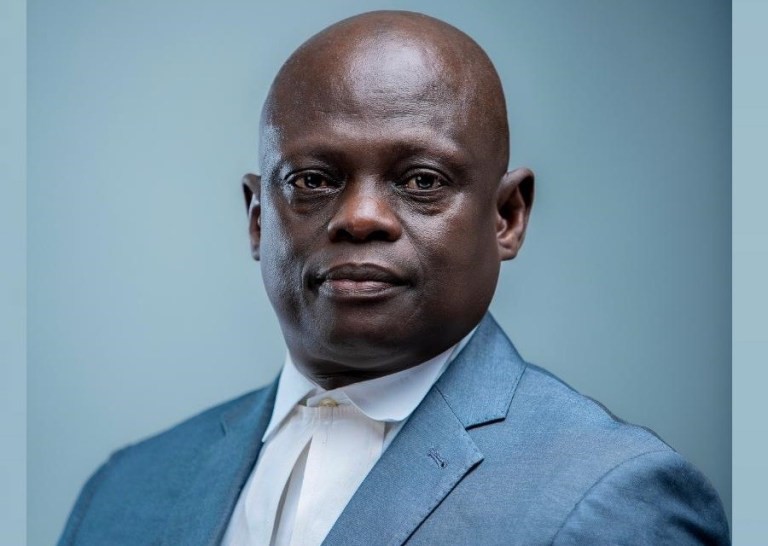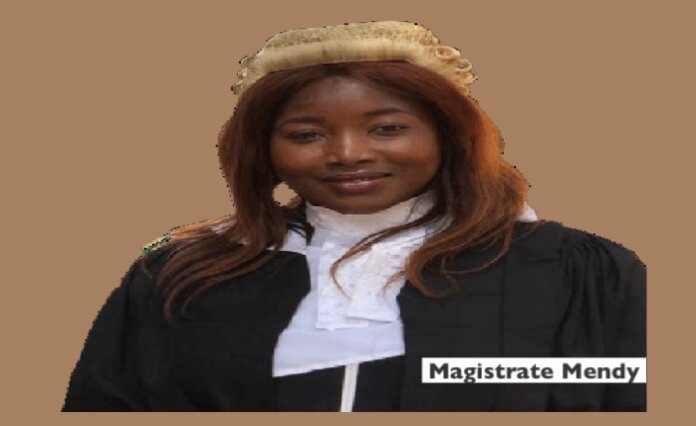By: Nicholas Bass
Lawyer Lamin J. Darboe, representing Foni legislature, Almamy Gibba, and seven other PRO-FGM organizations and individuals last Thursday contended that the Supreme Court of The Gambia has the jurisdiction to hear and determine his clients’ submission.
Lawyer Darboe in his submission argued that section 127(1)(a) of the 1997 constitution empowered the Supreme Court of The Gambia to interpret or enforce any provision of the constitution, adding that the only exception is sections 18 to 33 and section 36(5) which according to him deal with fundamental human rights and freedom.
According to lawyer Darboe section 127 (1)(a) reads that the Supreme Court has exclusive original jurisdiction for the interpretation or enforcement of any provision of the constitution excluding provisions related to fundamental human rights and freedoms in sections 18 to 33 and section 36 (5).
Lawyer Darboe adduced that parties in the suit are dealing with a court that sits at the highest (supreme) authority of the judicial system in The Gambia, noting that the Supreme Court has concurrent jurisdiction with the lower courts of The Gambia to hear the said suit in question.
He disputed with the state lawyer A.A. Wakawa’s submission that section 127(1)(a) robbed the Supreme Court of the jurisdiction to hear the suit, explaining that one will be in error if he/she says that the Supreme Court cannot interpret or enforce the fundamental freedom of its citizens’ rights and freedom in the country.
‘’My Lords, my Lady I believe that submission is in error, and is misleading of section 127(1)(a)’’, lawyer Darboe submitted.
The state [defendant] lawyer A. A Wakawa, however, stated that the reliefs of the plaintiffs were incompetent, and maintained that the court lacked the jurisdiction to hear and determine the matters, relating to the interpretation or enforcement of sections 17 to 33 of the 1997 Constitution of The Gambia.
Lawyer Wakawa stated that the reliefs sought by the plaintiffs were anchored on sections 4,5 and 127 (1) (b) of the 1997 Constitution, and section 5(1) (b) of the Supreme Court Act which added that the plaintiffs’ case was not one of interpretation or enforcement of the provisions, for it fell under chapter V of the Constitution.
Wakawa deduced that the plaintiffs’ case was centered on the amendment of section 32 of the Women’s Act of 2010 and the insertion of new sections 32A and 32B by the Women’s Amendment Act No. 11 of 2015, which prohibited the act of female circumcision, which according to him were inconsistent with sections 17 (1) and (2), 25 (1) (c), 28(1) and (2), 32 and 33 (2) and (3) of the 1997 Constitution and “therefore in contravention of section 4 of the Constitution of The Gambia”.
He went further that “Section 4 of the Constitution is clear when it states that this Constitution is the supreme Law of The Gambia and any other law found to be inconsistent with any provision of this Constitution shall, to the extent of the inconsistency, be void.”
According to lawyer Wakawa plaintiffs in their reliefs, stated that such was in contravention of section 4 of the 1997 Constitution, which according to them was ‘’ultra vires, null and void’’.
Meanwhile, the Supreme Court of The Gambia has granted the application of lawyer Darboe to amend the face of the suit from the matter of sections 4, 5 and 127(1)(a) of the Constitution of The Gambia 1997, section 5(1)(a) of the Supreme Court Act Cap 6:05 to section 4,5, and 127(1)(a)(b) of the Constitution of The Gambia 1997, section 5(1)(a) of the Supreme Court Act Cap 6:05.
The plaintiffs: Hon. Almamy Gibba alongside Yassin Fatty, Nano Jawla, Kadijatou Jallow, Concerned Citizens, Islamic Enlightenment Society, Women’s Association for Islamic Society Solidarity, and Gambian Women Are Free to Choose Association are seeking from the court a declaration to strike out sections 32A and 32B of the Women’s Amendment Act No. 11 of 2015 from the Women’s Act of 2010 so that only section 32 of the original provision of the Women’s Act of 2010 will be maintained.
The plaintiffs are also seeking from the court a declaration that the act of the National Assembly in passing the Women’s Amendment Act No.11 of 2015 was done in excess of legislative authority and, therefore, void, and no effect and inconsistent with section 17 (1) and (2), 25(1)(c), 28 (1) and (2), 32 and 33(2) and (3) of 1997 Constitution.
Meanwhile, the case has been adjourned for ruling.





